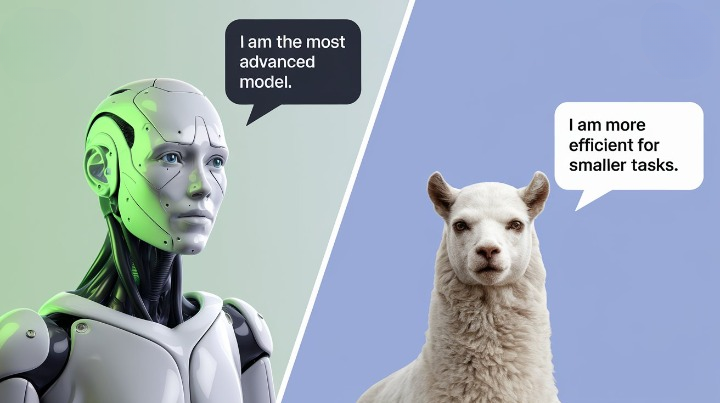
As generative AI technology gains traction across marketing, sales, and customer service sectors, businesses are increasingly faced with the challenge of selecting the right large language model (LLM) for their conversational AI needs. According to recent data, generative AI adoption in these fields ranks second only to IT and cybersecurity. Conversational AI, in particular, is poised for rapid growth due to its ability to enhance communication between businesses and customers.
However, many leaders are uncertain about how to begin implementing this technology. The key decisions involve choosing between different LLMs, whether to opt for open source or closed source models, and managing the associated costs. Here, we compare two leading LLMs—GPT-4o from OpenAI and Llama 3 from Meta—to provide insights into their cost implications for conversational AI.
Setup Costs: These include everything required to get the LLM operational, such as development and infrastructure expenses. For businesses needing a quick deployment, GPT-4o offers a straightforward solution with minimal setup, as it is accessed through a simple API call. In contrast, Llama 3, being an open-source model, requires hosting on private servers or cloud infrastructure, leading to potentially higher setup costs and more time spent on initial configuration.
Processing Costs: These are incurred based on the volume of conversation handled by the LLM. Costs are often measured in tokens, a unit of text that LLMs process. Each model has its own token pricing structure, which affects the overall cost of running the conversational AI.
GPT-4o: As a closed-source model, GPT-4o is hosted by OpenAI. Its setup involves integrating with OpenAI’s infrastructure via API, which entails minimal upfront setup costs. This convenience comes with a premium, but it ensures a faster go-to-market time.
Llama 3: This open-source model requires you to manage hosting either on private servers or through cloud providers like AWS. The cost here involves renting server time or using cloud-based instances. Providers like Amazon Bedrock offer token-based pricing, which could be advantageous if your usage volumes are low. However, the need for additional tools and maintenance can add to the overall cost.
For Quick Deployment: GPT-4o offers a faster and more straightforward setup with a premium cost, suitable for businesses needing to launch their conversational AI quickly.
For Long-Term Cost Efficiency: Llama 3, despite higher initial setup costs, can be more cost-effective over time, especially for large-scale operations where token-based processing may offer significant savings.
Level of Control: Llama 3 provides more control over your data and model, which might be crucial for businesses with specific requirements or those managing substantial volumes of conversations.
The choice between GPT-4o and Llama 3 will largely depend on your business needs, budget constraints, and desired level of control. By understanding the foundational and processing costs, businesses can make informed decisions that align with their conversational AI goals and financial considerations.